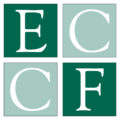The EQ Edge successfully glides the reader through the landscape of understanding Emotional Intelligence in a fairly systematic and simplified (but not overly-simplistic) way. One of the authors is the publisher of the EQ-I, an assessment of emotional intelligence that is based on Reuven’s Bar-On emotional intelligence model. Even so, the book is far more than a commercial for the test.
The authors explain the five realms of emotional intelligence: the intrapersonal realm, the interpersonal realm, the adaptability realm, the stress-management realm, and the general mood realm. They devote full chapters to explaining the skills and attitudes that make up each realm. These include emotional self-awareness, assertiveness, independence, self-regard, self-actualization, empathy, social responsibility, personal relationships, problem-solving, reality testing, flexibility, stress tolerance, impulse control, happiness, and optimism. For each, the book provides reflective questions for self-assessment and “self-coaching” assignments for improving that attribute.
For anyone who had heard the term “emotional intelligence” and didn’t know exactly what it encompassed, or thought that it simply meant controlling one’s darker emotions, this book will provide a working knowledge of a subject that is being increasingly acknowledged as one of the most important driving factors of leadership success. This is also a great book for someone who already understands the building blocks of emotional intelligence and wants some help in making improvements.
While these skills and attitudes do correspond to the 15 scales on the EQ-I test, one does not in any way need to take the test in order to understand and self-assess themselves in the skills and attitudes.




